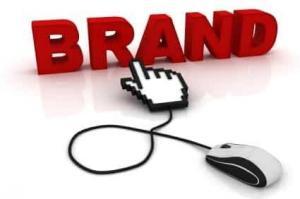 Tim Cook, the CEO of Apple, says the company pays all the tax it owes and follows the “spirit” of the law. That “spirit” has allowed the company to earn $74bn through an Irish subsidiary and only pay a tax rate of 0.05% on it. Apple is not alone, of course. In spite of earning billions, Starbucks has only paid an average of £533,333 in tax in the UK for the past 15 years. The row became so intense the company even volunteered to stump up some extra cash for the Government kitty. Meanwhile, the Google chairman, Eric Schmidt, has had to speak out and defend the company following the grilling it received in the House of Commons recently.
Tim Cook, the CEO of Apple, says the company pays all the tax it owes and follows the “spirit” of the law. That “spirit” has allowed the company to earn $74bn through an Irish subsidiary and only pay a tax rate of 0.05% on it. Apple is not alone, of course. In spite of earning billions, Starbucks has only paid an average of £533,333 in tax in the UK for the past 15 years. The row became so intense the company even volunteered to stump up some extra cash for the Government kitty. Meanwhile, the Google chairman, Eric Schmidt, has had to speak out and defend the company following the grilling it received in the House of Commons recently.
Wherever you look, big international brands are under fire from politicians. Of course, that’s understandable; the politicians have been partially responsible for the world’s economic turmoil and they need cash to patch up the holes they created. Anyone with loads of cash – and Apple has a spare $100bn slopping about – is fair target for the politicians.
But there is another issue – fairness. Does it seem fair that Apple pays a rate of 0.05% tax where you pay between 20% and 45% on – I imagine – a lot less income? Does it seem fair that Google in the UK does not conduct any actual sales transactions here, but the “deal” is firmed up via an email from Ireland? Or does that seem like “bending the rules”?
I am sure a tax lawyer will tell us that the companies are merely using the legal framework as set by governments and international agreements. Maybe.
But the companies need to listen more to psychologists than their lawyers. Why? Because new research suggests there could be an impact on the businesses themselves if they carry on with this “we follow the law” rigmarole. The study shows the influence of brand on decision making. The researchers showed that decisions to purchase are changed when we are faced with preferred brands. It seems we could make a decision to buy something, but as soon as one of our preferred brands comes into the mix our decision making is altered.
Importantly, the researchers point out that a key element in this is what psychologists call “affect”. That means the emotional mood you feel. In other words it is not the prices or the quality of the products that influences your attraction to brands, but how you feel about them. In other words, it is your emotional response.
So how is your emotional response to Apple who say they follow the spirit of the law, yet pay almost no tax on billions of income? How is your emotional response to Google who say they “do no evil” yet hardly contribute to the Inland Revenue? The chances are you are going to feel more negative towards these brands than before. And that is their problem.
It means that when we come to make purchasing decisions the impact of their brand could be lessened. It is not tax they are saving; rather they could be losing sales – much more important to them in the long run.
So, what lessons can we learn from these big brands? It is what people think about you, how they feel about you and their overall emotional response to your business that matters. If they don’t like you, they won’t buy from you.

